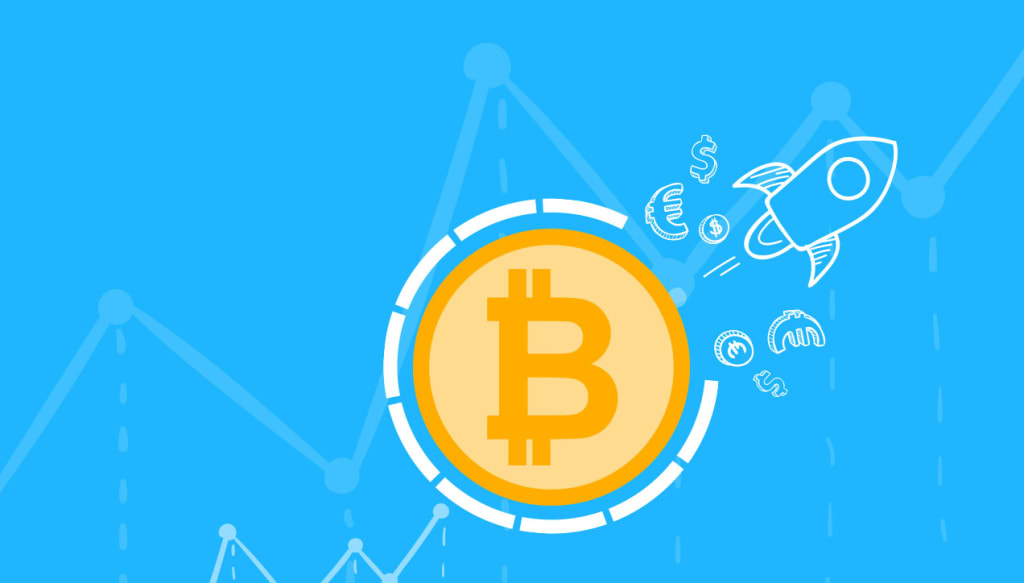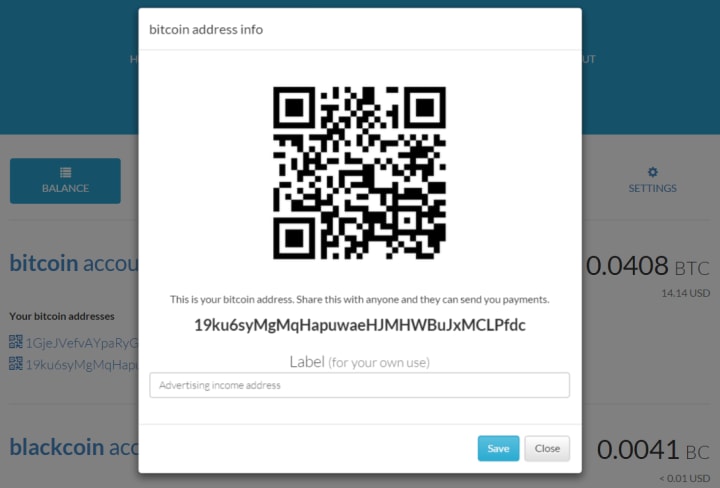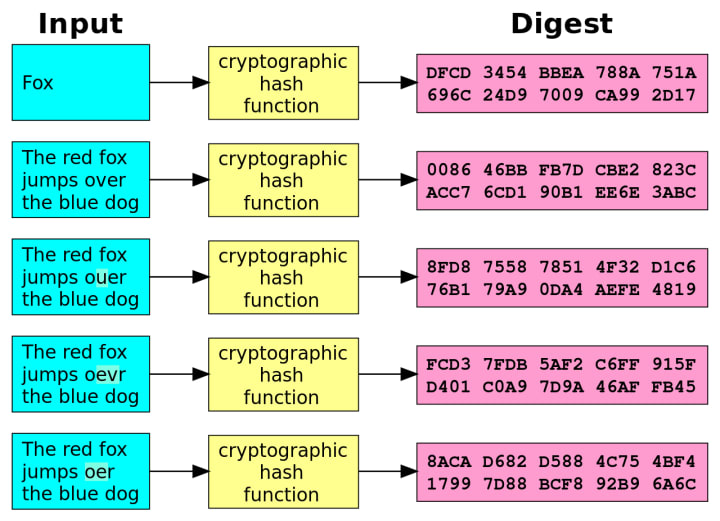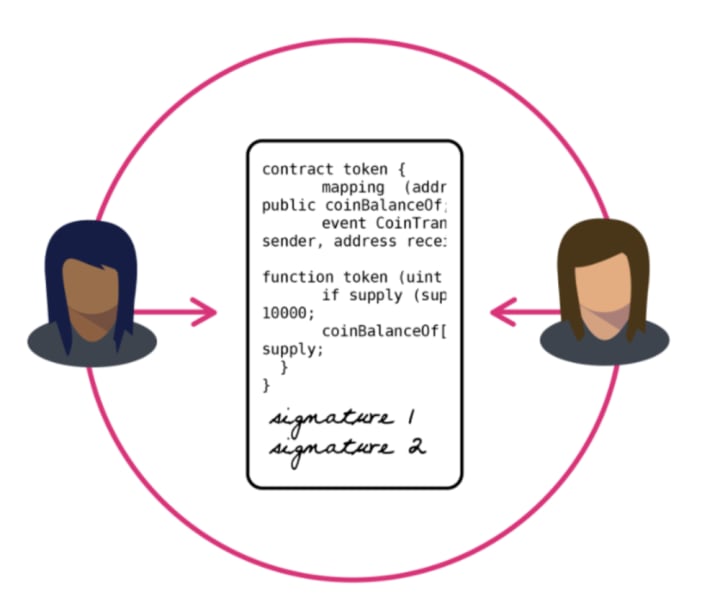
Navigating the world of the internet is no easy blunder, due in part to a multitude of factors, ranging from the limited amount of security and the various layers of ongoing traffic, to the unfolding effects of social media and the ranging dark web horror stories. Even more daunting, identical as it is to the real world, grasping the nature and dialect provided by the many wonders hidden all across the net is practically impossible; I’m not just talking about "LOL" or "#MileysBack," I’m discussing more inherent internet jargon, such as 4chan speak, algorithmic coding, pixelated messaging—hell, let’s even add the language of emoji.
More prominent and ever-growing in the modern setting is, of course, the likes of cryptocurrencies, and if you don’t know the talk, well you simply just won’t get it. Allow me to break down the language of our internet’s most illustrious form of monetary exchange: cryptocurrency. It’s safe to say that such words may already exist, such as the wallet (which, in all intense and purposes, hasn’t necessarily changed meanings), or the essence of a private key. In reality, knowing a bit of finance and banking, while also applying the pure anonymity of online transactions thus leads you into discovering the basics of the cryptocurrency market. Still, like the very blocks upon blocks of blockchain data associated with the digital currency itself, there is much and more to learn when unlocking the universe of cryptocurrency slang.
Blockchain
If we apply real world understandings to the language of cryptocurrency, one might find that a perfect analogy of the “blockchain” is literally memory or history itself. Think of it as a ledger carrying within it various informational blocks of data, hence a "block" serves as a map point in that specific history, and the "genesis block" is obviously the very first block in a blockchain. Here’s another analogy: a blockchain is the USB, and the blocks are all the pieces of storage among the removable disk drive.
Understanding the cryptocurrency slang isn’t so difficult once you apply real life aspects to its fundamental nature. Break it down even further, using our trusty ancient Latin, the block (chain) serves as a literal timeline, or chain, from the very first forms of data, to the many millions that have occurred in the moments it took you to read this. This is why some skeptics are at odds with the digital form of monopoly, seeing that while there is a full level of anonymity, there’s still a consistent record of every single form of transaction and point of data; all saved, all kept safe and secure within many interconnected blockchains.
Dapp
This word within our cryptocurrency slang is simply a decentralized application, one that calls for complete anonymous transactions, or an open sourced form of exchange across a well protected distributed network. These are the general forms of pathways and avenues through which you use cryptocurrency tokens, which can be processed in the form of transactions, token exchanges, services, and the like, all of which, like pretty much anything and everything you do on the internet, is still logged away and remembered in the aforementioned blockchain.
The open sourced connotation upheld within the dapp is in the process by which one acquires anything from various goods (foods, guns, drugs) to subscriptions, or even deeper online access. While there may be the word "decentralized" within the dapp, it’s rather counterintuitive thinking; these applications still consist under a protocol that monitors values through the use of said tokens. It's simply not as regulated or as mono-layered as real world forms of exchange rates are, but then what is the best example of a dapp, you might ask? It’s bitcoin (and, yes, the “b” is lowercase).
Bitcoin

Okay, here’s where a lot of people not only get confused, but also find themselves caught up in a hype of a revolutionizing form of monetization that they simply don't understand; one that doesn’t just take time to evolve, it needs more users, transactions, evaluations, blocks, products, data placeholders, and so on. Bitcoin is this very form of hype, or what cryptocurrency slang would introspectively deem a #moon (or swift price increase) and #FOMO (Fear of Missing Out). It's a form of cryptocurrency that works on a proof-of-work blockchain. Before I even get into that, let’s discuss bitcoin (lowercase). This is the Mecca, the initiating entity of what we now know as bitcoin today, the very first decentralized peer to peer network cryptocurrency that's set on a global level. It cut not only the cost, but need for middlemen, hence the term "open sourced."
There’s also no primary issuer of said bitcoins, which is probably the biggest concern for many potential investors. But, this brings us to another point I wish to make: the bitcoin is not necessarily a form of investment as we may all know it, but is literal currency that must be used, magnified, enhanced, and given much more time to engrain itself in our everyday lives. I mean, some places are even now accepting bitcoins as forms of payment, which is mind boggling in of itself. One reason for this might be because of that whole proof-of-work (P2P) concept. This allows bitcoins to be shared via channels with double-spend protection, which is simply the form of protocol that denotes each and every token transfer. Okay, that's all grand, but you may be wondering: Just where do I store my bitcoin tokens? You’re the wallet, of course.
Digital Wallet
No, it’s not some new form of Apple technology. The cryptocurrency slang understanding behind the digital wallet is best grasped when you know how the real world wallet functions; the somewhat safeguarded and closely held storage unit for mostly personal financial information, whether it be credit and debit cards, or cash and old receipts. Simply put, you want no one else peering into your wallet, much less take possession of it, but the digital world is, ironically, far more dangerous then the real one when it comes to wallet safety. This is why the use of digital currency has been hit with some unsavory setbacks, as hacking and identify theft is no joke when messing with the likes of fluctuating pieces of data and the online functionalities behind distributed networks.
As is most often the case, a wallet is the software client that generates the specified token across that specific platform, from bitcoins and Etherum, to Zcash and Komodo. In the digital sense, the wallet is where you store crypto-keys, or simply private keys, which are the essential access points to the desired route of exchange you intend on making. While bitcoin may literally be a household name by now, the sheer size of the cryptocurrency world is so vast it’s daunting. Add to this the fact that various wallets, like their software platforms and even digital monopolies themselves, can be used in numerous ways, it’s an extremely large picture with many moving parts that are more often clunky or untrustworthy than normal paying options. As we progress into more intelligent forms of technology and the future unfolds the clearer, we will begin to strengthen the cryptocurrency market in the hopes that one day it can be a more commonplace route of exchange. Until then, my wallet stays in my pocket.
Cryptocurrency Addresses

Like their real-life connotations, addresses under cryptocurrency slang deal with the literal locations on the network where transactions take place. Addresses are utilized much like physical retail stores, or online marketplaces themselves, where transactions are both sent and received in a myriad of ways. Depending upon your specific token, wallet, exchange, and even address security itself, identify the various avenues, possibilities, and claims that your cryptocurrency can provide for you.
One can not only see this digital address in the form of a QR code, which can be scanned to not only track viability but also make further transactions with and in the form of alphanumerical symbols tacked in a long line, much like what you'd find on the bottom of a barcode itself. In that case, addresses are where one acquires specific products or services, and said addresses allow for the exchange of cryptocurrencies across a specified exchange network that is consistently monitored and driven by a codependent protocol of standards. This is why address security is upheld at all costs—but, not all forms of the cryptocurrency address are as safe or as trusted as others.
Private Key
The private key, or keys, held within a digital wallet make up your very own string of encrypted data, and hence gives you access to your token of choice. It's simply what it says it is: a privately owned string of monetary assets personalized to your liking and protected at all costs, hidden underneath a multiplicity of passwords that only you have access to. When it comes to cryptocurrency slang words, getting to the intricate pieces of the puzzle that make up the whole of the market is how you best grasp this highly complex form of exchange. What you are looking at is the essential bread and butter of the cryptocurrency market, wherein blocks live inside blockchains, private keys remain safe behind the walls of various wallets, and the entire world of the currency itself functions on a multiplicity of networks dedicated to the evaluation of constantly forming and reforming data.
If the digital wallet is, more or less, the bank, the private key is your own savings account or literal safe of valuable goods. It's not the only form of the cryptocurrency safe, though, as there are multi-signature and public addresses. While the multi-signature address is just another layer of added security, they require more keys to authorize a transaction. These multi-signature addresses have begun stopping hackers by making data theft irrelevant through the use of multiple locked access points requiring, again, multiple forms of identification and verification. The public address is, essentially, a form of your data being directly logged onto any site in the form of email addresses. To makes things almost more difficult to understand, the public address is the cryptographic hash function of a public key.
Cryptographic Hash Function

This is a rather important concept within cryptocurrency slang involving the parameters of the hash, the concept of a hashing mechanism, and the realities behind them all. The hash, as I said previously, makes up the authentication and plausibility of the block, while also giving it the essential ingredient of being a block, as well. It can be the confirmation of a coin transaction, which is also understood as a successful hashing and adding of a block to a blockchain, but it also embodies giving output data at a fixed rate, which leads me to the idea of the hashrate. This is how we measure, in seconds, the levels upon levels of various performance concerns inherent in the mining rig of choice. Much like a speedometer in a vehicle, the hashrate displays, in units of Mh/s (megahash per second), the affixed amount of time applied by a specific graphics processor, or GPU, to give blocks there qualifying nature.
The cryptographic hash function, on the other hand, is a kind of fixed value producer that is applied to blocks of data, giving them purpose and, essentially, a cost. This is the miner's tool in extracting, or identifying, the cost and nature of a specific block. One example of the cryptographic hash function is SHA-256, which is used in most blockchain cryptocurrencies, one of which being Bitcoin, and is the most well-known. It's an algorithm that centers on making specific points of data valuable, but also calls for the use of mining pools if miners are looking to make big bucks. There are various alternatives to the SHA-256 algorithm, like Scrypt, just as there are various forms of mining, like ASIC, GPU, and CPU. Speaking of which, what is cryptocurrency mining?
Mining
You may have heard this term used before within cryptocurrency slang, but it's not the same thing as digging for diamonds and excavating minerals. It deals quite plainly with the generating and unlocking of certain cryptographic problems, whether by solving them or by simply verifying the particular transaction, which are then added it to a blockchain. Mining, as in this sense, is bred most often though the likes of a proof of work network, rather then proof of stake.
Almost similar to the literal act of mining itself, in that you are collecting loads of historical data drops, cryptocurrency mining deals with the process of finding and storing these transactional points of information throughout the blockchain. There are various methods of encrypting cryptocurrency transactions, but the reasoning behind it is oftentimes to make money, as a variety of miners across the world make it their duty to implement hashes to blocks, which verify them and give them a level of pure authenticity. The only way miners get paid is by generating more and more authenticated transactional content, or simply identifying points of raw data, so as to streamline the cryptocurrency market and thereby enhance price movements so that the quality of a particular token goes up in favor of the miner, or group of miners.
Smart Contracts

While it may sound like some newfound form of physical intelligent technology, smart contracts more or less are, but on a digital level. Smart contracts deal with the terms of service and the systematic consensus of a particular sale, or sales within a given transaction. These are carried out in computational understandings, rather than the more obvious legal forms, due to the fact that it is all based on an online market. Through the use of oracles, which are simply tunnels that connect the real world with blockchain data, smart contracts are given real world informational data points so as to work much like an actual legally binding contract would, and to ensure that the currency in question is not abused or maliciously proliferated.
In cryptocurrency slang, one would denote the smart contract as an automatically executed piece of binding documentation based online and situated within the block of transactional data itself, though far more protected and insured. They can be automatically generated through the use of something like a suitable distributed ledger system, or simply a computing system that works out computational data in line with transactional and monetary concepts, as well. In reality, smart contracts are the laws binding both buyer and seller into a written agreement, therefore showcasing the legitimacy of the buyer, in addition to the form of money spent, and the proof of sale on the opposite end.
Ledgers
There are various forms of the ledger in connection with cryptocurrency slang, from the likes of a node, which is simply just a clone of a ledger made and held by the blockchain network participant, to a central ledger, one that is obviously upheld and maintained by one overruling agency or person. Within the cryptocurrency world, it is not so different from its real world application; a ledger is an unchanging form of record dealing with information on anything from personal transactional history to general finances. These ledgers are kept within a multiplicity of functional data stores called append-only file systems that keep a constant history of alterations to the transaction and overall contract.
Delving deeper into this system of digital ledgers, one must understand the difference between an attestation ledger and central ledger. Literally written in its name, the attestation ledger deals with the evidenced agreements made between both parties of a transaction. Commitments, or statements, then can be distributed and proven of their actuality and worth through the attestation ledger, while the central ledger deals with a form of agreement shared under a ruling agency, rather than various open ended parties. There's also more rectified forms of digital monetization that consist with both off- and on-ledger currency, or the way in which a cryptocurrency token is minted; the former being exemplified by the idea of distributed ledgers as a managing body for a national currency, while the latter more accurately defines an actual cryptocurrency, like bitcoin itself. Think of them as sort of byproducts of the other: off-ledger currency being minted off the ledger, but still used on it, on-ledger then being the opposite.
Decentralized Autonomous Organizations
The DOA, or decentralized autonomous organization, is a rather complex form of cryptocurrency slang that deals with the organizational, or business quality standards underpinning the cryptocurrency marketplace. For instance, though legalities are rather topsy-turvy in this regard, the DOA in real life standards can be understood as a sort of governing body, or set of guidelines, which are then conscripted within a multitude of smart contracts, recorded on various ledgers that are then blocked into a blockchain.
DOAs are, at their core, meant to bypass human intervention, distributed databases, and third party transactions, inherently intended to bring about more secure digital transactions and privatized volume to the cryptocurrency market. A few examples include Dash governance, Digix.io, and The DOA, which found itself under attack in 2016 when nearly $50 million in cryptocurrency funds were hacked from its Ethereum run smart contracts. Despite this rather poor example of their security protocols and safe net finances, DOA concepts are still the ever evolving factor in the cryptocurrency market and will help shape the future of the exchange, from tokens and values, to more sophisticated ledger databases and availability of more varied data points.
About the Creator
Ryan Epps
A cosmic adventurer rendering wayward letters into infinite lengths of conception and prose, like quantum streams of pneumatic information






Comments
There are no comments for this story
Be the first to respond and start the conversation.